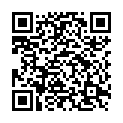|
|
|
| Module code: MST503 |
|
1V+1PA (2 hours per week) |
|
2 |
| Semester: 5 |
| Mandatory course: yes |
Language of instruction:
German |
Assessment:
Project work, written assignment
[updated 06.08.2012]
|
MST503 Mechatronics and Sensor Technology, Bachelor, ASPO 01.10.2005
, semester 5, mandatory course
|
30 class hours (= 22.5 clock hours) over a 15-week period.
The total student study time is 60 hours (equivalent to 2 ECTS credits).
There are therefore 37.5 hours available for class preparation and follow-up work and exam preparation.
|
Recommended prerequisites (modules):
MST204 Electrical Engineering
[updated 06.08.2012]
|
Recommended knowledge:
Electronics, Electricity and Magnetism, Mechanical Engineering, Thermodynamics
[updated 06.08.2012]
|
Recommended as prerequisite for:
MST603 Applied Electronics
[updated 12.08.2012]
|
Module coordinator:
Prof. Dr. Dieter Hornung |
Lecturer: Prof. Dr. Dieter Hornung
[updated 01.10.2005]
|
Learning outcomes:
After completing this course, students will be
- acquainted with a representative range of industrially deployed sensors,
- able to design sensor elements and the required processing electronics,
- in a position to learn about other sensor technologies not covered in the
course and to assess the current developments in the sensors market.
[updated 06.08.2012]
|
Module content:
- The terminology of measurement, instrumentation and sensor technologies, binary
sensors (proximity switches)
- Principles and methods of sensor technology explained using temperature and
pressure sensing as examples
- Analogue sensors (path sensors, accelerometers, flow sensors)
- Special-purpose sensors used in fluid technology (density sensors, viscosity
sensors, particle sensors, oil level sensors)
[updated 06.08.2012]
|
Teaching methods/Media:
Lectures, problem-solving exercises, written assignments
[updated 06.08.2012]
|
Recommended or required reading:
W. Göpel, J. Hesse, J.N. Zemel: Sensors, Volumes 1, 4, 5, 7, Weinheim, VCH Verlag
Company publications and monographs on specific topics
[updated 06.08.2012]
|


